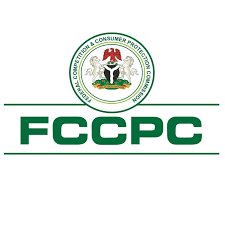Paragraph 1: Landmark Ruling Against Tech Giants
The Competition and Consumer Protection Tribunal (CCPT) in Nigeria delivered a significant judgment against Meta Platforms Incorporated and its subsidiary, WhatsApp, upholding a substantial penalty imposed by the Federal Competition and Consumer Protection Commission (FCCPC). The ruling, issued on an undisclosed date following arguments concluded on January 28, 2025, reaffirmed the FCCPC’s authority and validated its actions in a protracted investigation into the tech giants’ data privacy practices. The CCPT ordered WhatsApp and Meta to pay a combined $220 million fine for data discrimination practices and an additional $35,000 to reimburse the FCCPC’s investigative costs. This verdict, the culmination of a legal battle following the initial FCCPC ruling on July 19, 2024, signifies a major victory for consumer protection and fair competition in Nigeria’s digital landscape.
Paragraph 2: Affirmation of FCCPC’s Authority and Investigative Process
The CCPT meticulously addressed the key legal challenges raised by Meta and WhatsApp. The tribunal underscored the FCCPC’s adherence to prevailing laws, confirming its operation within the constitutional framework of Nigeria. It validated the FCCPC’s investigative procedures and affirmed that the commission had provided Meta and WhatsApp with ample opportunity to respond to the allegations, thus dismissing claims of a breach of fair hearing. Crucially, the tribunal recognized the FCCPC’s mandate to regulate competition and consumer protection, even within sectors governed by specific regulations, thus solidifying the commission’s authority in matters concerning data protection and privacy.
Paragraph 3: Scrutiny of Meta’s Privacy Policies and Data Practices
The CCPT directly addressed Meta’s privacy policies, a central point of contention in the case. The tribunal upheld the FCCPC’s findings that the policies in question contravened Nigerian law. This reinforces the importance of aligning data practices with local regulations and safeguards consumer rights in the digital sphere. The investigation, spanning 38 months and jointly conducted by the FCCPC and the Nigeria Data Protection Commission, started in 2020 and scrutinized WhatsApp and Meta’s data handling procedures. The comprehensive inquiry highlighted the data discrimination practices employed by the companies, leading to the eventual imposition of penalties.
Paragraph 4: The $220 Million Fine and Reimbursement Order
The $220 million fine imposed on Meta remains a significant aspect of the ruling. The CCPT affirmed the penalty, highlighting the severity of the data privacy violations and the need to deter such practices. This substantial financial consequence serves as a stark reminder for multinational corporations operating in Nigeria to prioritize compliance with local laws and consumer rights. The tribunal’s decision to uphold the sanction emphasizes the commitment to ensuring fair and transparent data handling practices. The additional $35,000 reimbursement order for investigation costs underscores the importance of holding companies accountable for the resources expended in addressing their transgressions.
Paragraph 5: Limited Revision of the FCCPC’s Order
While largely upholding the FCCPC’s decisions, the CCPT did set aside Order 7 of the original ruling. This specific order was deemed to lack sufficient legal basis, demonstrating the tribunal’s meticulous review of the case and commitment to ensuring that all imposed measures are legally sound. The annulment of Order 7 does not diminish the overall impact of the ruling, but rather emphasizes the CCPT’s nuanced approach to adjudicating complex legal matters. The core findings and penalties related to data privacy violations remained intact.
Paragraph 6: Implications and Future Directions
This landmark judgment holds significant implications for the digital ecosystem in Nigeria. It strengthens the FCCPC’s mandate to regulate competition and protect consumer rights in the digital sphere, signaling a commitment to holding powerful technology companies accountable. The ruling also sets a precedent for future cases involving data privacy and anti-competitive practices. It reinforces the importance of compliance with local data protection laws and fosters a more equitable and transparent digital marketplace. The FCCPC’s success in this legal battle underscores its role as a robust defender of consumer rights and a champion of fair competition in Nigeria. The government’s commitment to consumer protection is apparent in its alignment with the Renewed Hope Agenda of President Bola Ahmed Tinubu, further underscoring the significant implications of this case.














